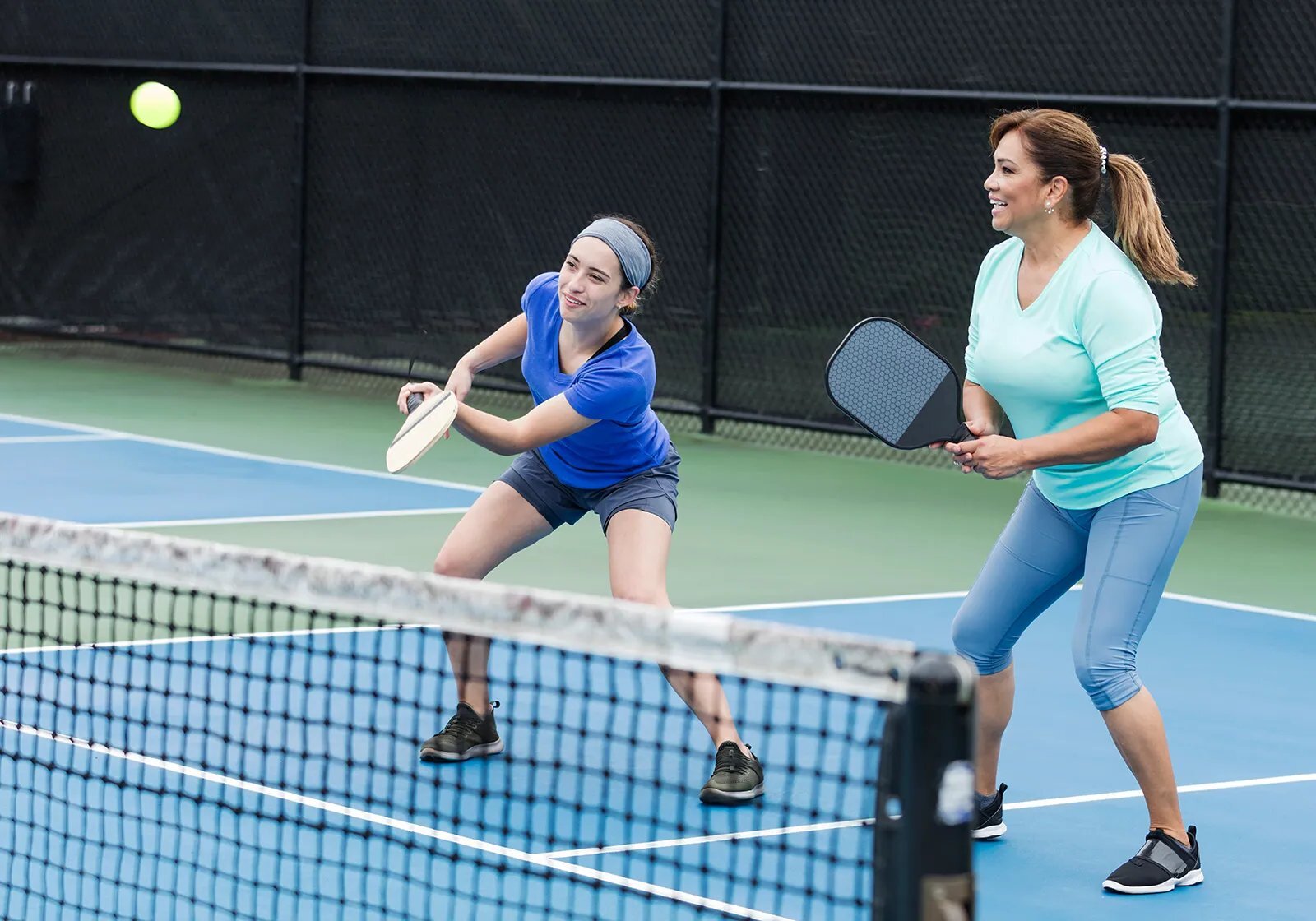
Ever wondered why pickleball is sweeping the nation as the fastest-growing sport? Well, you're in for a treat! This quirky game, with its unique blend of tennis, badminton, and ping-pong, has everyone from beginners to seasoned athletes hooked. But what's the big deal, and why should you care? Pickleball is not just a sport; it's a community, a way to stay active, and, most importantly, a whole lot of fun. From its peculiar name to its fascinating history and the rapidly growing number of courts across the country, there's so much to learn about this engaging sport. Whether you're a curious newbie or a die-hard fan, these 20 pickleball facts are sure to serve up some surprises and maybe even inspire you to grab a paddle. Ready to get the ball rolling? Let's dive into the world of pickleball and discover what makes it such a smash hit!
Key Takeaways:
- Pickleball is a fun and fast-paced sport that combines elements from tennis, badminton, and ping-pong. It's easy to learn and can be played by people of all ages, making it a great way to stay active and socialize.
- As pickleball continues to grow in popularity, it's expected to become a staple in the global sports community. With advancements in technology and potential inclusion in major sporting events, the future of pickleball looks bright and exciting.
What is Pickleball?
Pickleball combines elements from tennis, badminton, and ping-pong, creating a unique and fast-paced game. Played both indoors and outdoors, this sport requires a paddle and a plastic ball with holes. Originating in the mid-1960s on Bainbridge Island, Washington, it was invented by three dads looking to entertain their families. Now, it's one of the fastest-growing sports in the United States.
The Name "Pickleball"
Ever wondered how pickleball got its quirky name? Two theories exist. One suggests it was named after the inventor's dog, Pickles, who loved to chase the ball during games. Another theory posits that the name comes from the term "pickle boat," referring to the last boat to return with its catch in rowing, symbolizing the mix of sports that pickleball represents.
Basic Rules of Pickleball
- Pickleball is played on a court similar to a badminton court, measuring 20×44 feet, with a net in the middle.
- Games can be singles or doubles, with the aim to reach 11, 15, or 21 points, winning by at least two points.
- Serving must be done underhand, with the paddle below the waist, and the ball must land in the opposite diagonal court.
- A unique feature is the non-volley zone, or "the kitchen," where players cannot volley the ball (hit it in the air) within seven feet of the net.
Popularity and Growth
Pickleball's popularity has skyrocketed, with millions playing worldwide. The USA Pickleball Association (USAPA) reports a significant increase in registered places to play, showing the sport's expanding footprint. Communities and sports centers are rapidly adding pickleball courts to meet demand, highlighting its appeal across all age groups.
Equipment and Apparel
- Pickleball paddles have evolved from simple wooden designs to sophisticated materials like graphite and composite, offering better control and power.
- Balls are specifically designed for indoor or outdoor play, with different weights and hole patterns.
- Apparel has also seen advancements, with players opting for specialized shoes, moisture-wicking clothing, and protective eyewear, emphasizing the sport's professionalization.
Health Benefits
- Playing pickleball provides a cardiovascular workout, improving heart health and endurance.
- It enhances agility, balance, and coordination, benefiting players' overall physical fitness.
- The sport fosters social interaction, contributing to mental well-being and reducing stress levels.
Competitive Scene
- Tournaments are held locally, nationally, and internationally, with categories for different skill levels and ages.
- The sport has a governing body, the International Federation of Pickleball (IFP), which oversees rules and promotes the game globally.
- Professional players can earn sponsorships and prize money, making it not just a hobby but a potential career.
Pickleball for All Ages
- Pickleball is celebrated for its inclusivity, appealing to youngsters, adults, and seniors alike.
- Schools are incorporating pickleball into physical education programs, recognizing its value in teaching teamwork, hand-eye coordination, and physical fitness.
- Retirement communities are particularly fond of the sport, offering a fun way to stay active and socialize.
Environmental Impact
- Efforts are being made to produce eco-friendly pickleball equipment, with some brands offering recyclable paddles and balls.
- Courts are designed to minimize space and can be integrated into existing sports facilities, reflecting a commitment to sustainable practices.
The Future of Pickleball
- With technology's role in sports growing, pickleball enthusiasts can expect advancements in equipment, training methods, and online platforms for learning and community building.
- As the sport continues to gain followers, it's poised to become a staple in the global sports community, with potential inclusion in major sporting events and further professionalization of the game.
A Final Serve on Pickleball Facts
We've dished out some pretty cool facts about pickleball, haven't we? From its quirky origin story to its skyrocketing popularity, this game's journey is nothing short of fascinating. Whether you're a seasoned player or just curious about the sport, these tidbits offer a glimpse into the world of pickleball that goes beyond the court. It's more than just a game; it's a community builder, a fitness booster, and a testament to the power of a simple idea turning into a global phenomenon. Next time you hit the court, remember these facts. They might just make your game a tad more interesting, or at the very least, give you some fun conversation starters between matches. Keep swinging, keep serving, and who knows? Maybe you'll be part of pickleball's next big milestone.
Frequently Asked Questions
Was this page helpful?
Our commitment to delivering trustworthy and engaging content is at the heart of what we do. Each fact on our site is contributed by real users like you, bringing a wealth of diverse insights and information. To ensure the highest standards of accuracy and reliability, our dedicated editors meticulously review each submission. This process guarantees that the facts we share are not only fascinating but also credible. Trust in our commitment to quality and authenticity as you explore and learn with us.


